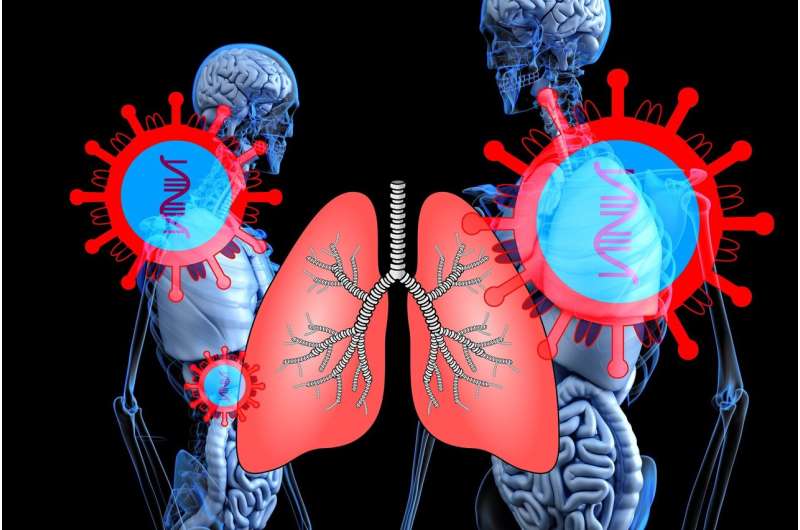
Credit: Pixabay/CC0 Public Domain
Younger patients with lung cancer are significantly more likely to be diagnosed at later stages of the disease than older patients, highlighting the need to develop strategies to improve early detection of lung cancer in younger patients not currently eligible for lung cancer screening come into question. The research results were presented today at the IASLC World Conference on Lung Cancer 2022 in Vienna, Austria.
Lung cancer screening guidelines in the US were established to screen high-risk adults over 50, making younger adults unsuitable for screening and potentially leading to large discrepancies in the stage of diagnosed lung cancer between younger and older patients. During the past decade, there has been a significant shift to earlier-detected disease states in patients over age 50, likely due to the advent of lung cancer screening in the United States. In contrast, there were minimal improvements in early detection of young lung cancer patients.
To examine this issue, Ms. Alexandra Potter of Massachusetts General Hospital in Boston and colleagues examined data from patients aged 20 to 79 years in the United States Cancer Statistics Database and the National Cancer Database (NCDB) who had non-small cell lung cancer was diagnosed.
Ms. Potter’s research team found that from 2010 to 2018, an estimated 1,328, 5,682, and 39,323 cases of lung cancer were diagnosed in the United States in people ages 20 to 29, 30 to 39, and 40 to 49, respectively. Over 75% of patients aged 20-29 years were diagnosed with stage IV disease, compared to only 40% of patients aged 70-79 years. The percentage of stage IV lung cancers diagnosed in younger patients under 50 years of age has not changed from 2010 versus 2018, while the percentage of stage IV lung cancers diagnosed in patients > 50 years of age has decreased significantly over this period. The researchers observed a shift to earlier disease stages in patients aged 50-59, 60-69 and 70-79 years, while no shift was observed in patients aged 20-29, 30-39 or 40-49 years.
“In this national analysis, we found that younger patients with lung cancer are significantly more likely than older patients to be diagnosed with later stages of the disease,” said Ms Potter. These results highlight the need to develop strategies to improve early detection of lung cancer in younger patients who are currently not eligible for lung cancer screening.”
Ms. Potter noted that patients over 50 experienced a significant shift into previously identified disease states over the past decade, likely due to the advent of lung cancer screening in the US. In contrast, there were minimal improvements in early detection of young lung cancer patients.
Consumer health: what is lung cancer screening and who needs it?
Provided by the International Association for the Study of Lung Cancer
Citation: Early Diagnosis of Lung Cancer in Younger vs. Older Adults: Widening Disparities in the Era of Lung Cancer Screening (2022 August 8) retrieved August 8, 2022 from https://medicalxpress.com/news/2022-08- early-diagnosis-lung-cancer-jünger.html
This document is protected by copyright. Except for fair trade for the purpose of private study or research, no part may be reproduced without written permission. The content is for informational purposes only.
#Early #detection #lung #cancer #younger #older #adults #increasing #differences #age #lung #cancer #screening

Leave a Comment